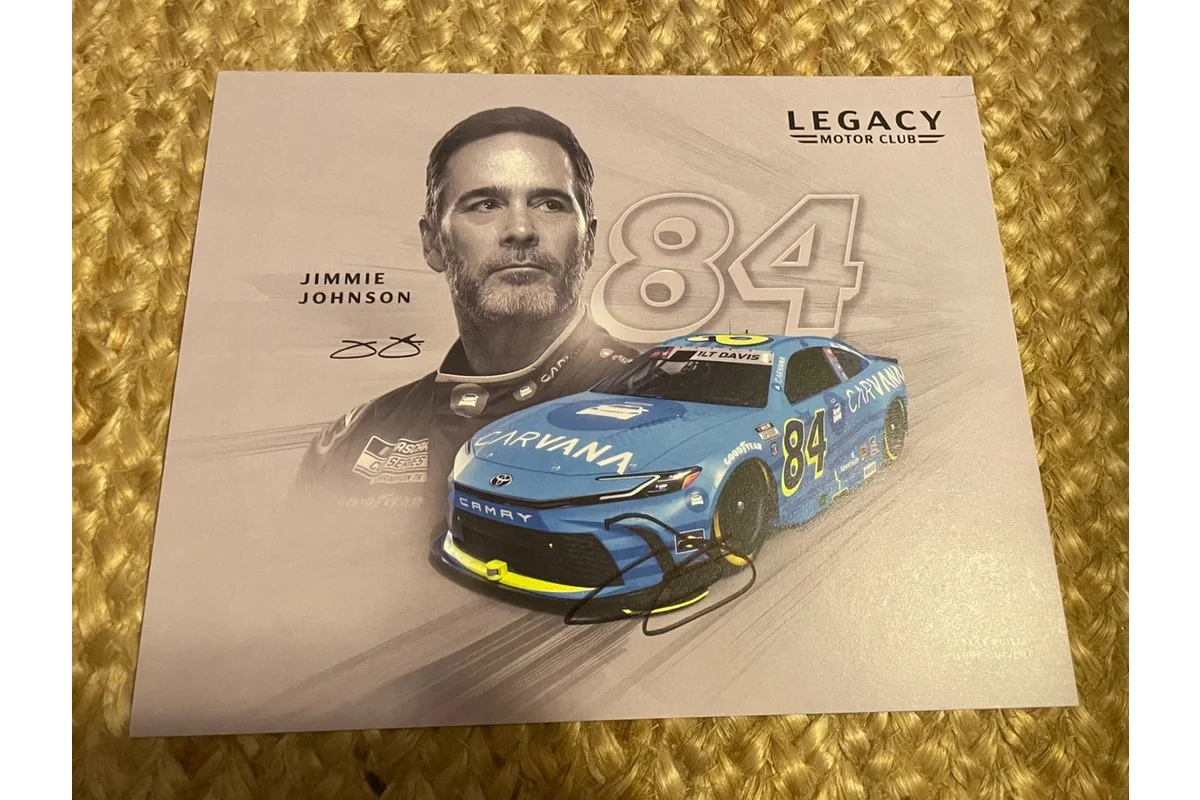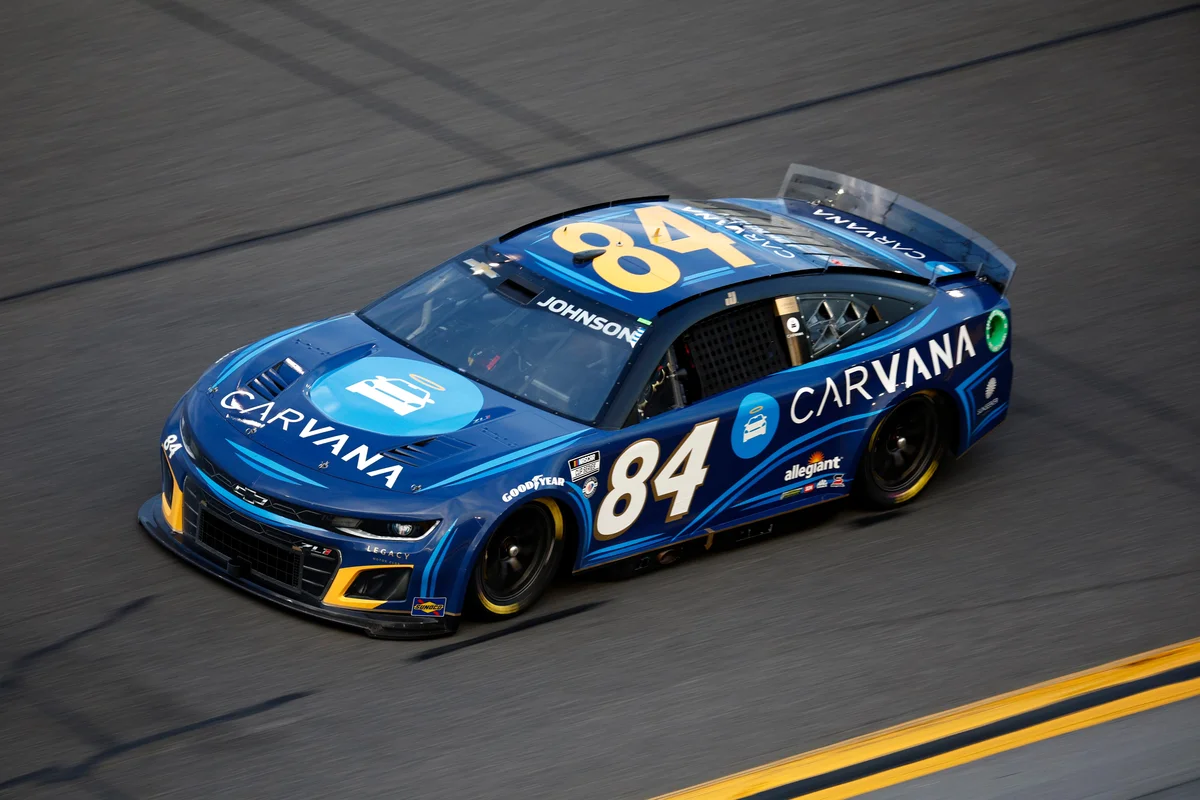Jimmie Johnson’s NASCAR legacy has grown beyond American tracks, making an impact not only with his championships but also as an ambassador connecting NASCAR to the wider world of motorsports. His recent racing appearances, including an exhibition event in Japan, emphasize a career that’s influencing both international competitors and fans while highlighting stories of courage within the sport.
Jimmie Johnson Bridges NASCAR and Global Motorsport
Jimmie Johnson has established himself as more than just a legendary NASCAR driver. With his presence at international venues such as Fuji Speedway in Japan, he is taking on the role of ambassador, using his reputation to promote NASCAR-style racing to broader audiences. At this event, Johnson drove the iconic Camaro ZL1 in a Super Taikyu series exhibition, one that put American muscle alongside Japan’s endurance racing machines under the new ST USA class. This move reinforced his commitment to expanding NASCAR’s reach, as fans around the world watched a familiar American champion on an unfamiliar stage.
Johnson’s choice to represent stock-car racing abroad is a high-profile statement, resonating particularly with international fans. He is no longer just a prominent driver racing for personal accolades; instead, he serves as a conduit, carrying NASCAR culture into new territories. This ongoing effort illustrates why his legacy transcends records and race victories—it’s shaped by bridging gaps between drivers, styles, and even continents.

A Moment of Vulnerability at Dover: Hideo Fukuyama’s Cup Debut
Decades after the event, the 2002 NASCAR Cup Series race at Dover remains a touchstone for both Jimmie Johnson and Hideo Fukuyama. Their discussion on Super Taikyu TV recently reopened memories from that day, when the Japanese driver faced not only the physical demands of one of NASCAR’s most punishing ovals at Dover International Speedway, but also the mental turmoil of a Cup Series debut as an international outsider.
During their interview, Johnson recalled observing Fukuyama at the rookie meeting with genuine concern, recognizing Dover’s reputation as an unforgiving track, particularly for newcomers. He commended Fukuyama’s courage, understanding the inner battle that it takes for any driver to step onto that kind of stage under the spotlight of expectation and fear of failure. Fukuyama, in turn, shared candidly that just prior to the race, anxiety and fear overtook him to the point where he nearly abandoned the opportunity altogether, questioning if he could go on and if he truly belonged alongside established stars.
That moment, shared publicly years later, underscores the unseen pressures of racing at the elite level. It also highlights the humanity within the competitive fire—the silent mentorship, the support among rivals, and the ways small gestures of reassurance from a respected competitor like Johnson can be pivotal. Fukuyama’s determination to press on, despite daunting nerves, contributed a memorable chapter not just to his own career, but to NASCAR’s story of resilience and camaraderie.
Winning five championships in a row is insane,
Kevin Harvick, NASCAR Driver
That’s the problem with Jimmie Johnson leaving NASCAR and going to IndyCar. It’s like everybody forgot about things like this. It very well could be the most dominant piece of NASCAR history, winning five championships in a row. …The Jimmie Johnson era doesn’t get talked about like he’s a seven-time champion.
Kevin Harvick, NASCAR Driver
The Legacy in Perspective: Respect, Remembrance, and Recognition
Kevin Harvick, a respected name in NASCAR, has spoken out about what he believes is a lack of recognition for Jimmie Johnson’s colossal achievements within the sport. On his talk show earlier this year, Harvick responded to a fan’s inquiry, labeling Johnson’s five consecutive championships as an accomplishment unlikely ever to be repeated, and described it as a feat that stands out in NASCAR’s extensive history. He highlighted how Johnson, along with iconic crew chief Chad Knaus and Hendrick Motorsports, formed a team whose dominance is frequently overlooked despite its significance.
Harvick elaborated on the strange legacy Johnson has within the sport, noting that his decision to leave NASCAR for IndyCar may have caused some to lose sight of his unprecedented run. He contrasted Johnson’s seemingly understated reputation with his statistical and cultural impact, pointing out that, even within Hendrick Motorsports, Johnson was sometimes cast in the shadow of fan favorites like Dale Earnhardt Jr. and Jeff Gordon. This underlines a recurring theme: despite amassing seven championships and rewriting record books, Johnson’s career has been defined by understated leadership and support for others—the type that was evident in his concern for Fukuyama so many years ago.
Fukuyama’s story, and the quiet guidance Johnson provided, represents the spirit that motorsports idolize most—a willingness to uplift others, fostering resilience, and setting examples that last far beyond race day. Johnson’s legacy is therefore not just measured by numbers but by the positive effect he has had on competitors, fans, and the very culture of NASCAR and auto racing worldwide.
Jimmie Johnson’s Enduring Influence on NASCAR
The story of Jimmie Johnson and his influence on rivals like Hideo Fukuyama at Dover provides a striking snapshot of the internal and external challenges drivers face. For Johnson, his NASCAR journey is as much about championship banners as it is about earning respect among peers and bridging cultures. His current role as a global ambassador only amplifies his standing, introducing NASCAR’s excitement and ethos to fresh audiences, from Daytona Beach to Japan.
As the debates about his place in racing history continue, Johnson’s example lives on in ways the record books can’t always capture. He has shown compassion toward rivals, inspired underdogs, and remained at the center of discussions about true greatness in the sport. Champions like Kevin Harvick urging the sport’s community to recognize Jimmie Johnson’s full NASCAR legacy only strengthens calls for a broader appreciation—one that honors both the records and the relationships built in the fast-paced world of NASCAR.
While Hideo Fukuyama interviewed Jimmie Johnson on Super Taikyu TV, they reminisced a bit about Fukuyama's Cup debut at Dover in 2002. I've added subtitles so you can understand what Fukuyama-san is saying.
Fukuyama joked that Jimmie kept looking at him in the rookie meeting… pic.twitter.com/uI0Rr0DOjD
— Steven Taranto (@STaranto92) November 16, 2025
